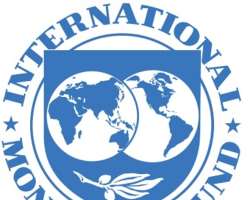IMF Executive Board Completes Seventh and Final Review Under the Policy Support Instrument with Rwanda Approves New Three-Year PSI

KIGALI, Rwanda, December 3, 2013/African Press Organization (APO)/ -- The Executive Board of the International Monetary Fund (IMF) today completed the seventh and final review under Rwanda's Policy Support Instrument (PSI) and approved a new three-year PSI. In completing the review, the Board approved the authorities' request for a waiver for non-observance of the continuous assessment criteria related to the ceiling on contracting non-concessional borrowing (NCB).
The Executive Board took note of Rwanda's cancellation of the current PSI, which was scheduled to expire in January 2014. The IMF's framework for PSIs is designed for low-income countries that may not need financial assistance, but still seek IMF advice, monitoring, and endorsement of their policy frameworks. Members' programs under PSIs are based on country-owned poverty reduction strategies adopted in a participatory process involving civil society and development partners (see Public Information Notice No. 05/145).
The authorities' program aims to lay the foundations for strong and inclusive growth, with a strong emphasis on economic transformation; rural development; productivity and youth
employment; and accountable governance, supported by macroeconomic stability and improved public financial management. Rwanda's program will build on the progress made under the previous PSI-supported program and is aligned with the objectives of the new economic development and poverty reduction strategy.
The Executive Board approved a three-year PSI for Rwanda on June 16, 2010 (see Press Release No. 10/247). On June 17, 2013, the Executive Board completed the sixth review and approved an extension of the PSI by seven months to end-January 2014 ( see Press Release No. 13/217).
Following the Executive Board's discussion of Rwanda, Mr. Naoyuki Shinohara, Deputy Managing Director and Acting Chair, stated:
“The Rwandan authorities are to be commended for the strong implementation of their economic program under the Policy Support Instrument. Prudent and inclusive policies, good governance, and support from development partners have contributed to sustained economic growth and poverty reduction.
“Going forward, fiscal policy will need to focus on domestic revenue mobilization to finance the authorities' ambitious development goals. Aligning spending with available resources and judicious selection and financing of investment projects will minimize risks to the budget. It will also be important to strengthen debt management capacity and follow a prudent approach to new borrowing to entrench long-term fiscal and debt sustainability. The central bank will need to closely monitor rising inflationary pressures and adjust the policy stance as needed while maintaining exchange rate flexibility. Efforts to increase financial inclusion and bolster the regulatory and supervisory frameworks should also be accelerated.
“The authorities' new poverty reduction strategy aims to sustain high and inclusive growth. The authorities should maintain their commitment to prudent policies and pursue their broad reform agenda to tackle structural impediments. In particular, further reducing the costs of doing business and addressing infrastructure deficiencies would support economic diversification, foster private sector development, and broaden the export base. The renewed focus on integration at the East African Community level should help in this regard. Finally, continued emphasis on policies that will further assist poverty reduction efforts is welcome.”
ANNEX
Recent Economic Developments
Rwanda's economic performance over the last decade has been an economic success story. Its macroeconomic performance has generally outperformed its peers in the region. Prudent fiscal and monetary policies geared toward maintaining macroeconomic stability, coupled with a strong emphasis on building institutional capacity, promoting good governance, and creating a business friendly environment, contributed to low inflation and average annual economic growth in excess of 8 percent over the last decade. Public debt remained modest and reserve buffers kept the economy resilient to shocks.
However, Rwanda faces some key vulnerabilities, including its high dependence on donor aid, low government revenue, narrow export base, and weak infrastructure, with resulting high costs of doing business that arise from relatively high energy and transport costs. For example, recent economic developments have been strongly influenced by the suspension and delays of aid flows last year, and their eventual resumption this year.
Reflecting the slowdown in the first half of the year, growth for 2013 is projected to be 6.6 percent. For 2014, growth of 7.5 percent is projected, supported by a recovery in agriculture and a pick-up in services. Headline inflation is projected to rise to 6.5 percent by end-2013, reflecting rising food prices because of a relatively poor second harvest.
Program Summary
The objectives of the new PSI program are centered around four key pillars:
Private sector development: Strong private sector development is an important pillar of the authorities' economic transformation strategy. In this regard, the government intends to continue its investment program in strategic infrastructure to reduce the cost of doing business while deepening its reforms to continue improving the business environment.
Exports promotion: The new export strategy is aimed at increasing export earnings through broadening of the export base. The strategy focuses on a limited number of products with a view to diversify into non-traditional exports that are particularly agro-based while taking advantage of traditional exports to extend production and add value.
Domestic resource mobilization: In view of the important investment spending that is needed, one of the main priorities will remain creation of fiscal space through accelerated domestic resource mobilization and rationalization of spending.
Financial sector development: Financial sector development is the fourth pillar of the program. Financial inclusion is seen as a means to further ensure connection of the population to the market while increasing monetization of the economy. The financial reforms and the strengthening of capital markets are expected to allow mobilization of cheaper resources and support private sector investment.
